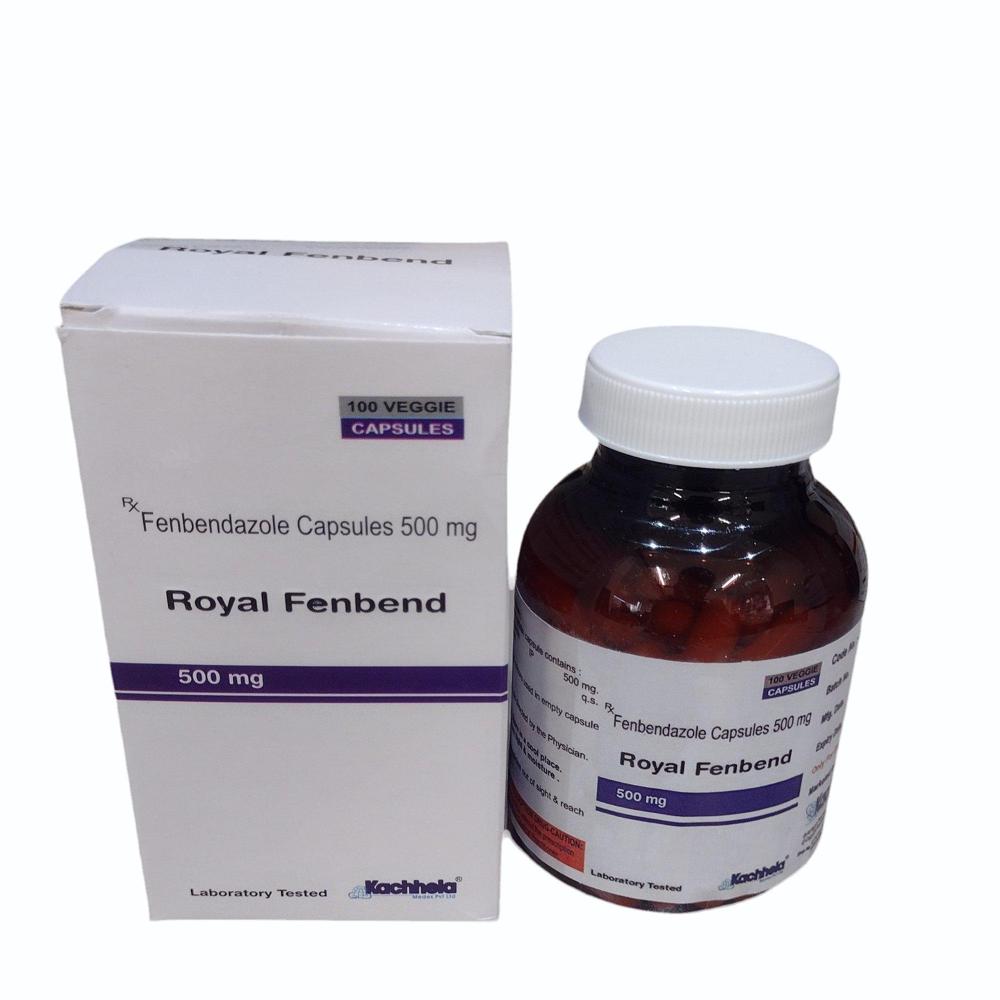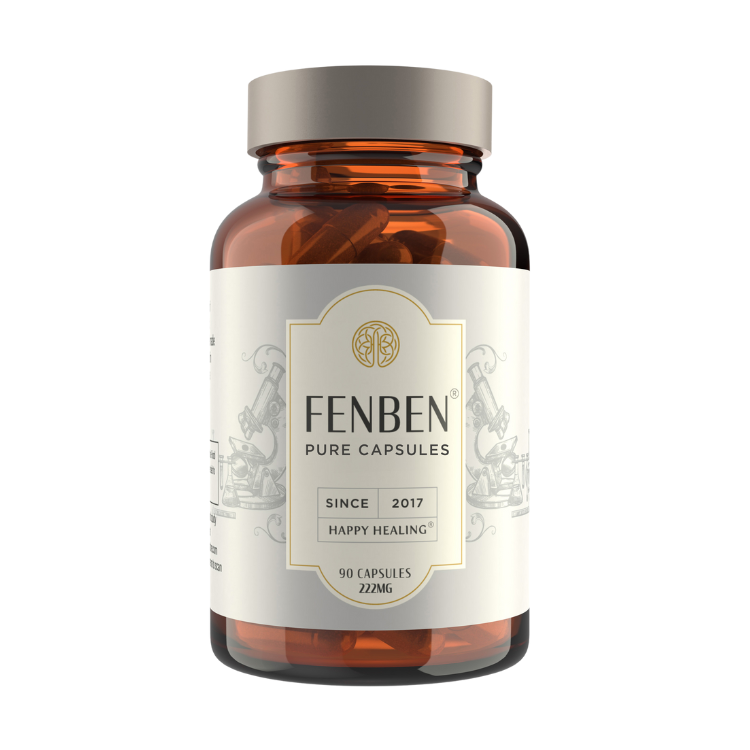Understanding the Perks and Uses of Fenbendazole in Vet Medication
Fenbendazole has established itself as a key anthelmintic in vet medicine. Its capacity to target numerous parasitical infections makes it an important tool for veterinarians. The medicine's mechanism interferes with crucial cellular procedures in parasites, bring about effective therapy results. Nevertheless, its safety account ranges types, necessitating careful consideration in its usage. Understanding these characteristics can shed light on fenbendazole's wider effects in vet treatment and recurring research into its prospective beyond conventional applications
System of Action of Fenbendazole

Common Parasitic Infections Treated With Fenbendazole
A range of parasitic infections are properly treated with fenbendazole, making it a functional option in vet medicine. This anthelmintic representative is especially effective versus nematodes, consisting of roundworms and hookworms, which typically affect pet dogs and pet cats. It is also made use of for the therapy of cestodes, such as tapeworms, offering a wide range of action against both kinds of intestinal tract parasites. Additionally, fenbendazole is beneficial in taking care of infections triggered by protozoa, particularly Giardia, which can cause gastrointestinal distress in animals. Its effectiveness expands to treating certain lungworms in dogs and felines, resolving respiratory health and wellness problems linked to these parasites. In general, fenbendazole's capacity to target numerous parasitic types makes it a beneficial tool in vet technique, guaranteeing the health and wellness of pets influenced by these common infections.
Security and Efficacy in Various Animal Variety
The safety and security and efficiency of fenbendazole vary amongst different pet types, underscoring the significance of species-specific considerations in veterinary medication. In dogs, fenbendazole is normally well-tolerated and effective versus a variety of intestinal parasites, including roundworms and hookworms. For felines, nevertheless, its usage is less typical and may require cautious application as a result of potential negative reactions.
In livestock, such as cattle and sheep, fenbendazole demonstrates performance against different endoparasites, adding to improved health and wellness and performance. Nonetheless, the pharmacokinetics and possible negative effects can vary substantially in between types, requiring careful assessment by veterinarians.
Equines also react positively to fenbendazole, particularly for treating strongyles and ascarids, though dose and administration routes have to be customized to their one-of-a-kind physiology. Consequently, recognizing these distinctions is crucial for optimizing therapy outcomes and making sure pet well-being across varied types.
Administration and Dosage Standards
Correct management and dosage guidelines are important for making the most of the healing results of fenbendazole while decreasing potential side results. The dosage normally differs relying on the varieties being dealt with, the specific problem, and the formulation of fenbendazole look these up utilized. fenbendazole 444. For pets and pet cats, a common dosage is 50 mg/kg body weight, provided as soon as daily for 3 consecutive days, but vets might change this based upon private health assessments
It is necessary to provide fenbendazole with food to improve absorption and decrease gastrointestinal distress. The medicine is readily available in various kinds, consisting of granules and paste, permitting flexible administration options. Keeping an eye on the pet's reaction during and after therapy is advisable to validate effectiveness and security. In addition, veterinary support is vital to establish the proper period of therapy based upon the kind of parasitical infection being resolved, guaranteeing suitable end results for the animal's health and wellness.
Future Viewpoints and Study on Fenbendazole
Research on fenbendazole continues to develop, concentrating on its possible applications beyond standard antiparasitic usages. Recent studies have explored its effectiveness in dealing with numerous kinds of cancer, this page particularly in vet oncology. Initial data recommend that fenbendazole may inhibit the growth of lump cells and enhance the effects of various other chemotherapeutic agents.
Scientists are exploring its function in managing gastrointestinal disorders in pets, highlighting its anti-inflammatory residential properties. The versatility of fenbendazole for different varieties questions regarding its security profiles and perfect dosing programs in diverse populaces.
As passion grows, there is a need for extensive scientific trials to develop evidence-based standards for these unique applications. Future research study may also explore the systems behind fenbendazole's results, possibly paving the way for cutting-edge restorative methods in vet medicine. The ongoing expedition of fenbendazole could click to read more greatly boost treatment alternatives for different vet conditions.

Frequently Asked Questions
Is Fenbendazole Safe for Pregnant Animals?
The security of fenbendazole for expecting animals stays unclear. While some researches recommend very little danger, vets commonly advise care and usually discourage its usage throughout maternity unless the benefits clearly outweigh potential risks.
Can Fenbendazole Be Made Use Of in Animals?
Fenbendazole is frequently used in livestock to treat numerous parasitical infections. fenbendazole 444. Its effectiveness against gastrointestinal worms makes it an important anthelmintic, adding to boosted health and productivity in animals increased for food and fiber
What Are the Adverse Effects of Fenbendazole?

The side effects of fenbendazole may include stomach disruptions, lethargy, and allergies. In unusual cases, more serious reactions might happen, requiring cautious monitoring and consultation with a vet throughout therapy.
Exactly How Does Fenbendazole Compare to Various Other Dewormers?
Fenbendazole uses broad-spectrum efficiency versus different bloodsuckers, usually contrasting positively to other dewormers. Its one-of-a-kind system targets various life stages, making it reliable, while usually offering a favorable security profile contrasted to options available on the marketplace.
Can Fenbendazole Be Used for Dealing With Cancer in Animals?
The potential of fenbendazole in dealing with cancer in animals has actually garnered passion. Preliminary studies suggest it might inhibit cancer cell growth, but even more study is necessary to verify its efficiency and security in vet oncology.